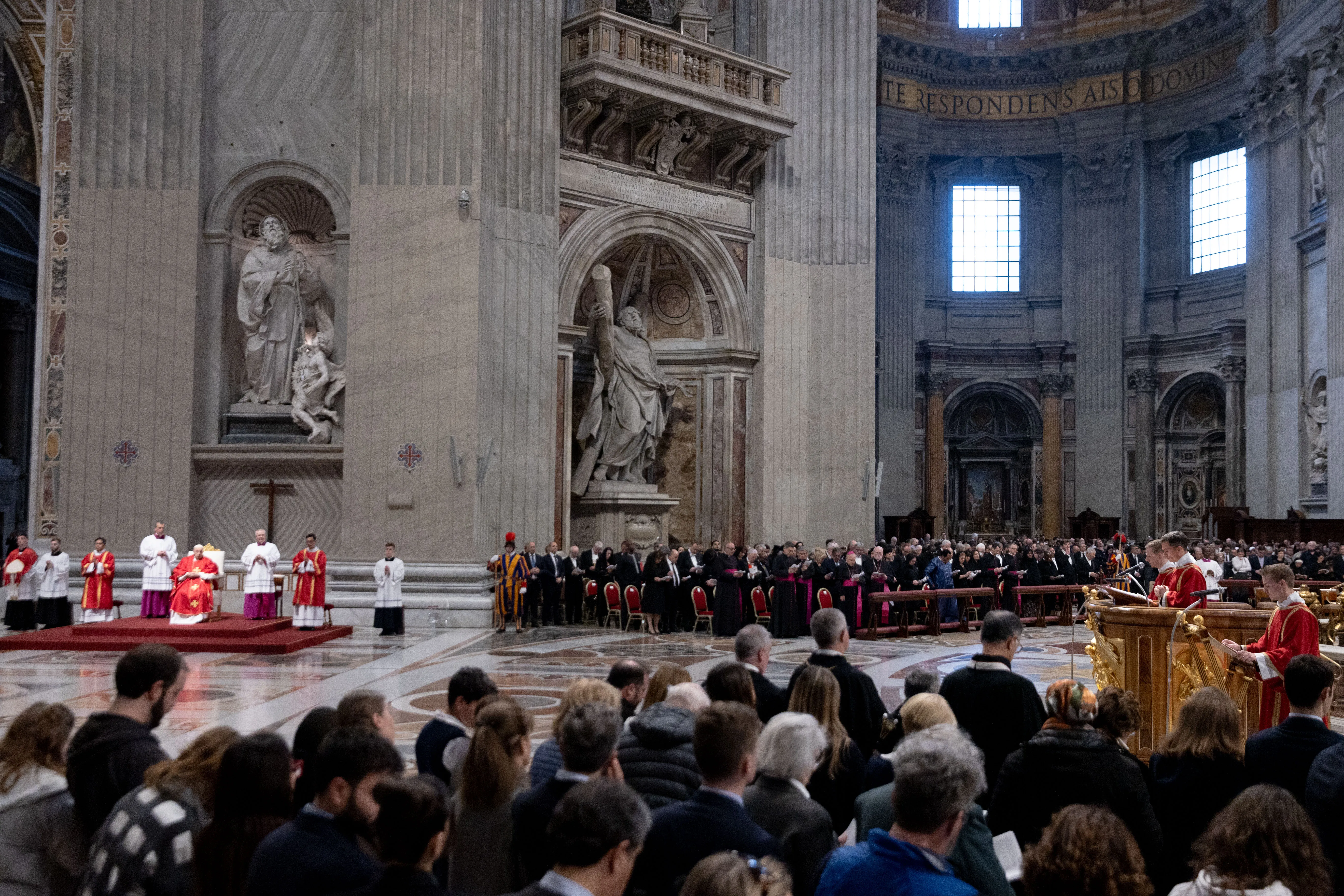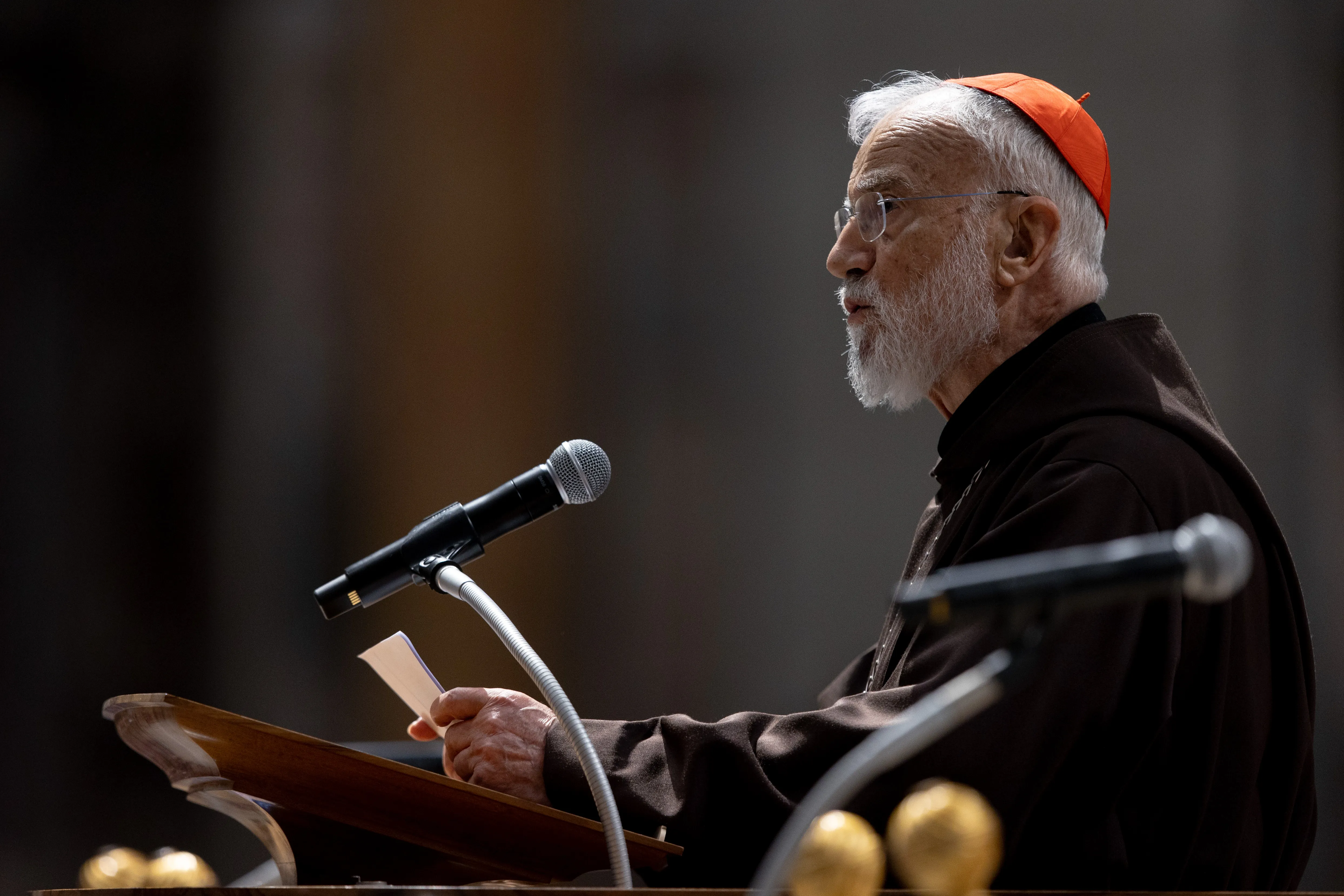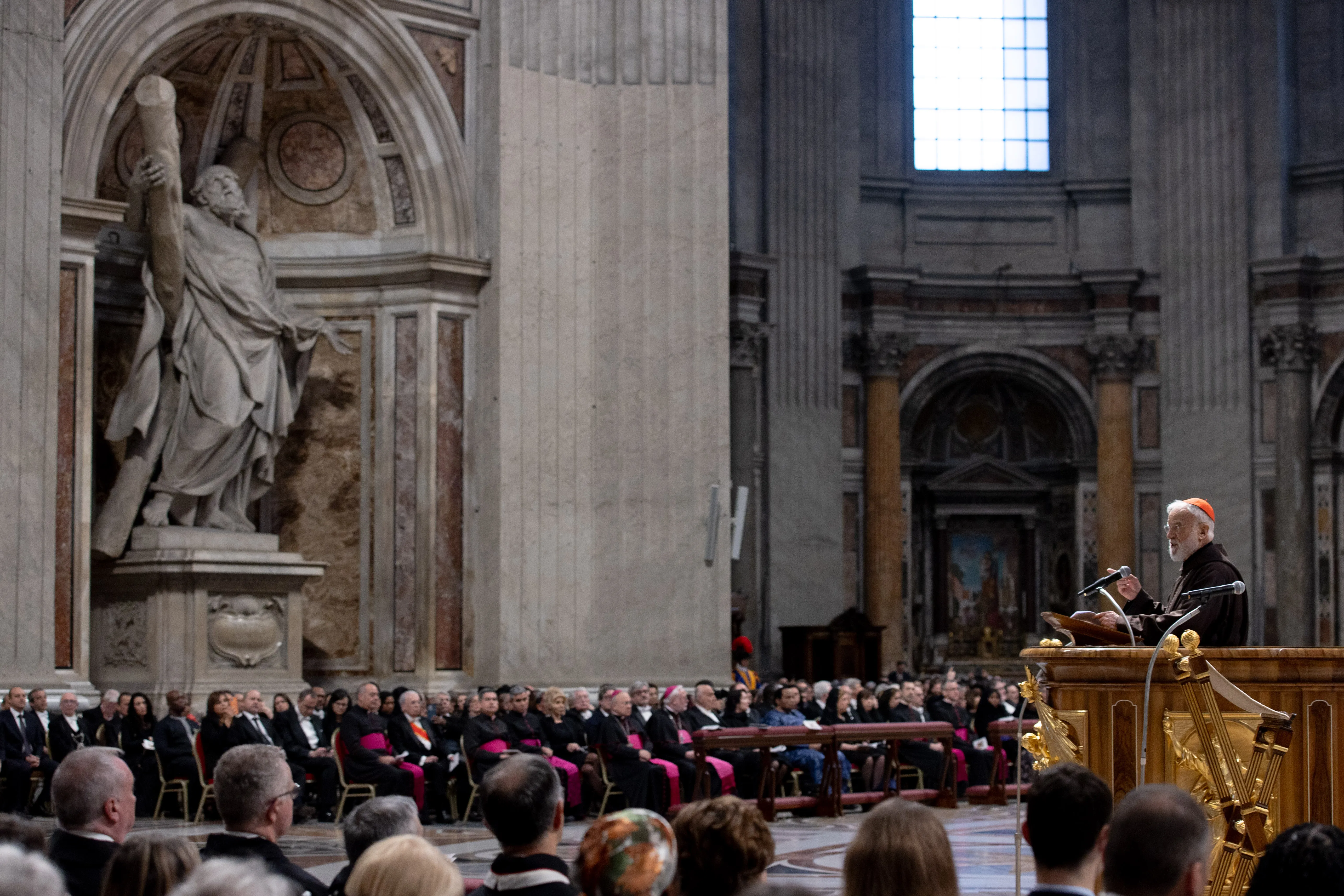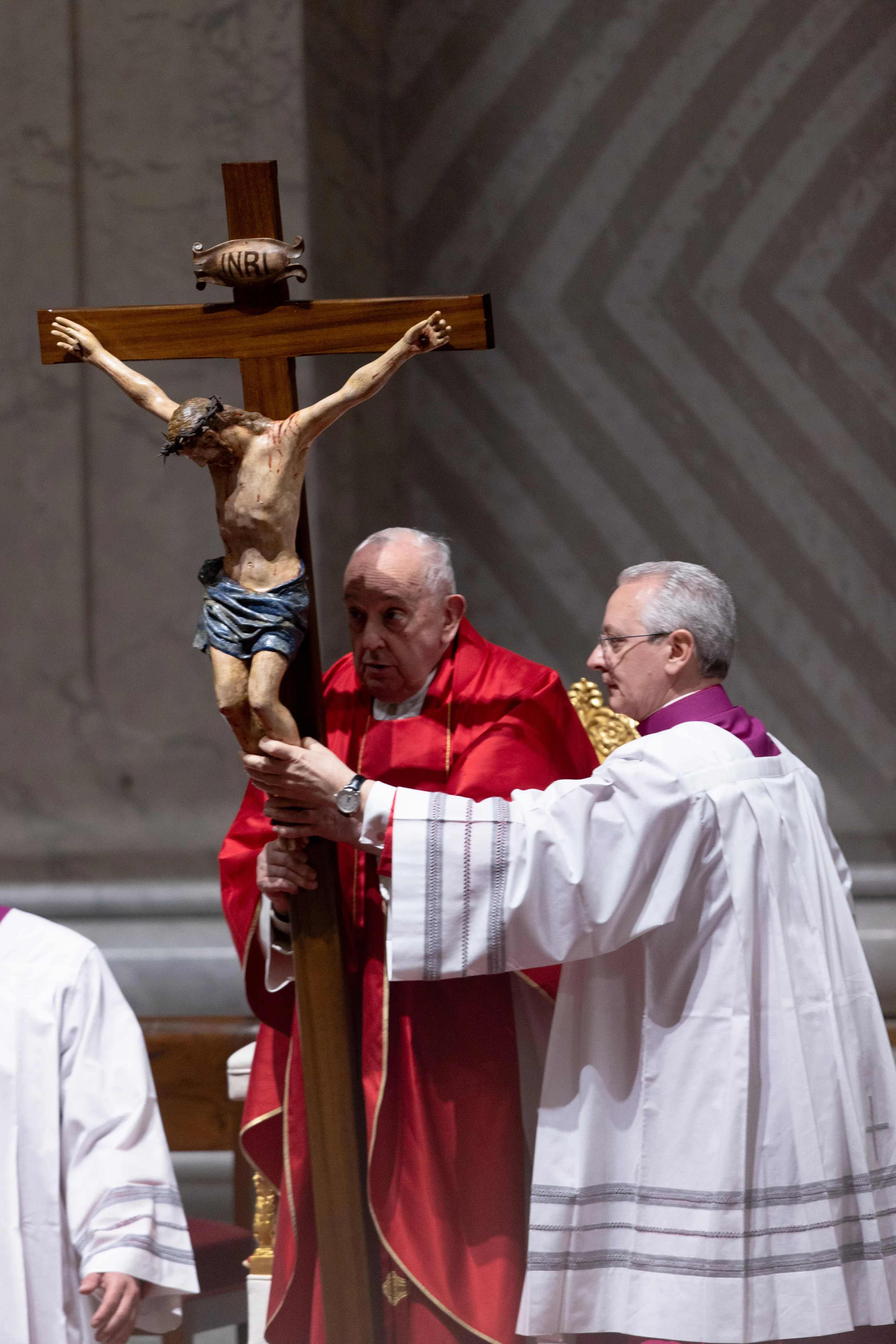PHOTOS: Pope Francis Celebrates Good Friday Liturgy at the Vatican
In homily, papal preacher reflects on the triumph of the cross.

During the Good Friday liturgy at the Vatican, presided over by Pope Francis, the papal preacher reflected on the triumph of the cross, noting that it is an event that changed the universal perception of God’s omnipotence, revealing his humility.
“The true omnipotence of God is the total powerlessness of Calvary,” Capuchin Cardinal Raniero Cantalamessa said during his homily.
At approximately 5 p.m. Rome time, Pope Francis made his way into St. Peter’s Basilica, in a wheelchair, vested in a red chasuble. Cast against the backdrop of complete and palpable silence, the Holy Father paused in meditation before the Papal Altar underneath Bernini’s Baldacchino (covered in scaffolding for its restoration), while the congregation knelt.
For the past several years, the Pope has been unable to lay prostrate due to his fragile health, which includes persistent knee problems and several bouts of pulmonary inflammation.
After the chanting of the Passion account from the Gospel of John, Cardinal Cantalamessa — who was made a cardinal in 2020 after more than 40 years as preacher of the Papal Household — opened his homily reflecting on Christ’s self-affirmation of “I am,” words he said come without any qualification and carry “an absolute, metaphysical significance” and an “unprecedented novelty.”
The cardinal stressed that this new paradigm can only be understood by looking at Christ’s preceding words heard in the Passion: “When you have lifted up the Son of Man.”
Observing that “to be lifted up” refers to the Crucifixion, the cardinal noted that the sum of these words express a “total reversal of the human idea of God,” revealing “the true face of God.”
“Jesus did not come to retouch and perfect the idea that men had of him, but, in a certain sense, to overturn it and reveal the true face of God,” he said. “He humbly behaves in the glory of the Resurrection as in the annihilation of Calvary. The concern of the Risen Jesus is not to confuse his enemies, but to immediately go and reassure his lost disciples and, before them, the women who had never stopped believing in him.”
“Understood in this light,” Cardinal Cantalamessa continued, “the word of Christ takes on a universal significance that challenges those who read it, in any era and situation, including ours.”
The cardinal warned not to conflate God’s omnipotence, and the “definitive and irreversible triumph” of the cross with temporal triumphs, as God’s triumph showcases humility.
“It takes little power to show off,” the cardinal noted, “Instead, it takes a lot to step aside, to cancel. God is this limitless power of self-concealment.”
“The Resurrection takes place in the mystery,” he continued. “As a Resurrected One, Jesus appears only to a few disciples, out of the spotlight. With this, he wanted to tell us that, after suffering, we must not expect an external, visible triumph, like an earthly glory.”
At the end of Cardinal Cantalamessa’s homily, the faithful sat in a moment of deep silence and reflection. This was followed by the reading of the Oratio Universalis, the universal prayer also known as the Solemn Intercessions.
Then, a deacon, flanked by two candle bearers, stopped at three separate points in the central nave of the basilica, proclaiming, with an increasing pitch, “Ecce lignum crucis” (“Behold the wood of the cross”). After the third proclamation, the deacon, holding an unveiled crucifix, brought it to the papal chair for the Pope’s veneration.
Once the crucifix was fixed in a central place, the Sistine Chapel Choir chanted the Improperia, or the Good Friday Reproaches, a series of antiphons sung in alternating manner between a cantor and the choir. The cardinals, who sat opposite the Pope, filed in line to kneel before and kiss the crucifix.
After the final prayer over the people, the Pope left the basilica just as he entered: solemn and in silence.
- Keywords:
- good friday



















